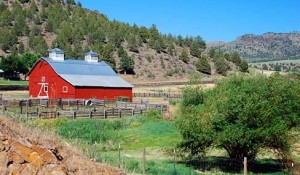Credence given to Oregon’s anti-rural jobs conspiracy theory

PROOF IN THE PUDDING: Far more roadblocks are placed in the way of rural projects Oregon than are placed in the way of urban projects like the Port of Portland’s current propane project.
By Deborah Steele Hazen | U-Choose Education Forum
Proponents of economic development in rural Oregon have long suspected — half in jest — that there is a conspiracy to stop job creation outside of Portlandia and the Willamette Valley.
Far more roadblocks are placed in the way of rural projects than are placed in the way of urban projects like the Port of Portland’s current propane project.
Where is the explosion from fear-mongers over that one?
The anti-jobs lobby, led by Columbia River keepers, has specifically targeted the Port of St. Helens-owned Port Westward industrial park near Clatskanie, the largest and best industrial site left on the Lower Columbia River.
Port Westward, the former Beaver Army ammunition shipment point, has been zoned for industry since being acquired by the Port of St. Helens in the mid-1960s. Portland General Electric built its Beaver plant there 40 years ago, and added Port Westward Unit 1 in 2007. PGE’s Unit 2, a natural gas-fired plant designed to back-up the vagaries of wind power, is now nearing completion.
Port Westward is at the junction of major natural gas lines with plentiful, cheap electricity, rail and road access, and a natural, self-scouring, deep-draft port. The 1,200 foot-long wharf, built by the Army in 1942, has handled a variety of cargo during the past 72 years, and is now in need of improvements to serve the modern maritime industry.
Consequently, the Port of St. Helens applied for two ConnectOregon V grants. Two existing industrial tenants — PGE and Global Partners’ Columbia Pacific Bio-Refinery — two projects in the permitting process — Ambre Energy’s Morrow Pacific and Global Partners’ proposed expansion — and the proposed Northwest Innovation Works’ methanol plant would benefit from the dock improvements. But it was the Port that applied for the grants because the improvements are designed to handle various commodities, create jobs and tax valuation for the next half century.
ConnectOregon applications go through an extensive review process before they receive final approval by the Oregon Transportation Commission (OTC), comprised of five members, appointed by the governor.







